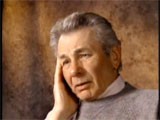You searched for: 3粉大咖引戰【TG飞机:@bapingseo】谷歌seo免费工具【TG电报:@bapingseo】南亚国外灰产【Telegram:@bapingseo】22年世界杯e乐彩线路检测路径?7sEVOj/539316.html
<< Previous | Displaying results 621-630 of 643 for "3粉大咖引戰【TG飞机:@bapingseo】谷歌seo免费工具【TG电报:@bapingseo】南亚国外灰产【Telegram:@bapingseo】22年世界杯e乐彩线路检测路径?7sEVOj/539316.html" | Next >>
-
Röhm Purge
ArticleThe Röhm Purge (the “Night of the Long Knives") was the murder of the leadership of the SA (Storm Troopers), the Nazi paramilitary formation led by Ernst Röhm. Learn more.
-
How did postwar trials shape approaches to international justice?
Discussion QuestionThe aftermath of the Holocaust raised questions about the search for justice in the wake of mass atrocity and genocide. The World War II Allied powers provided a major, highly public model for establishing internati...
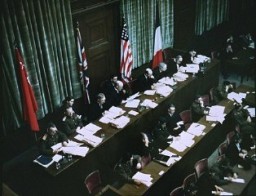
-
Selma (Wijnberg) Engel describes deportation to Sobibor
Oral HistorySelma was the youngest of four children born to Jewish parents. When she was 7, Selma and her family moved to the town of Zwolle where her parents ran a small hotel. When the Germans invaded the Netherlands in 1940, they confiscated the hotel. The family had to live in a poor Jewish section of the town. Selma went into hiding but was betrayed and then sent to the Westerbork camp. In April 1943 she was deported to Sobibor, where she worked in the clothes sorting area. There, the prisoners tried to pocket…
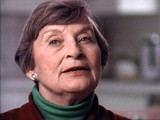
-
Leo Diamantstein describes Nazi marches and the Hitler Youth
Oral HistoryJoseph Leo Diamantstein was born in Heidelberg, Germany, on December 1, 1924, to Jewish parents. He was the youngest of four children. His family experienced antisemitism in Frankfurt, and ultimately decided to leave Germany. Beginning in 1933, the Hitler Youth and the League of German Girls had an important role to play in the new Nazi regime. Through these organizations, the Nazi regime planned to indoctrinate young people with Nazi ideology. This was part of the process of Nazifying German…
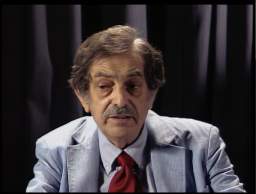
-
The United States: Isolation-Intervention
ArticleWhen WWII began, most Americans wanted the US to stay isolated from the war. From December 1941, the majority rallied in support of intervention to defeat the Axis powers.
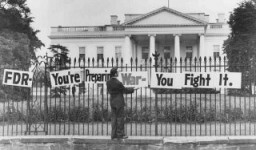
-
Assessing Guilt
ArticleAfter WWII, prosecutors faced the challenge of assessing the guilt of propagandists whose words, images, and writings had supported Nazi brutality and mass murder.
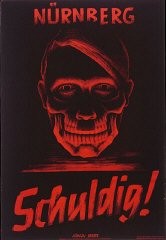
-
Wilek (William) Loew describes the roundup of Jews during August 1942 deportation from Lvov to Belzec
Oral HistoryWilek was the son of Jewish parents living in the southeastern Polish town of Lvov. His family owned and operated a winery that had been in family hands since 1870. Wilek's father died of a heart attack in 1929. Wilek entered secondary school in 1939. Soon after he began school, World War II began with the German invasion of Poland. Lvov was in the part of eastern Poland annexed by the Soviet Union. Although the Soviets took over Wilek's home and the family business, Wilek was able to continue his…
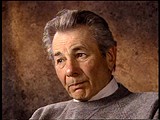
-
Wilek (William) Loew describes forced evacuation from Auschwitz
Oral HistoryWilek was the son of Jewish parents living in the southeastern Polish town of Lvov. His family owned and operated a winery that had been in family hands since 1870. Wilek's father died of a heart attack in 1929. Wilek entered secondary school in 1939. Soon after he began school, World War II began with the German invasion of Poland. Lvov was in the part of eastern Poland annexed by the Soviet Union. Although the Soviets took over Wilek's home and the family business, Wilek was able to continue his…
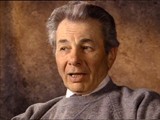
-
Wilek (William) Loew describes forced labor in Lvov
Oral HistoryWilek was the son of Jewish parents living in the southeastern Polish town of Lvov. His family owned and operated a winery that had been in family hands since 1870. Wilek's father died of a heart attack in 1929. Wilek entered secondary school in 1939. Soon after he began school, World War II began with the German invasion of Poland. Lvov was in the part of eastern Poland annexed by the Soviet Union. Although the Soviets took over Wilek's home and the family business, Wilek was able to continue his…
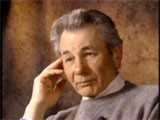
-
Wilek (William) Loew describes refugees from western Poland after their arrival in Soviet-occupied Lvov
Oral HistoryWilek was the son of Jewish parents living in the southeastern Polish town of Lvov. His family owned and operated a winery that had been in family hands since 1870. Wilek's father died of a heart attack in 1929. Wilek entered secondary school in 1939. Soon after he began school, World War II began with the German invasion of Poland. Lvov was in the part of eastern Poland annexed by the Soviet Union. Although the Soviets took over Wilek's home and the family business, Wilek was able to continue his…
